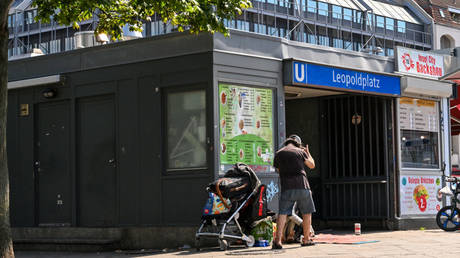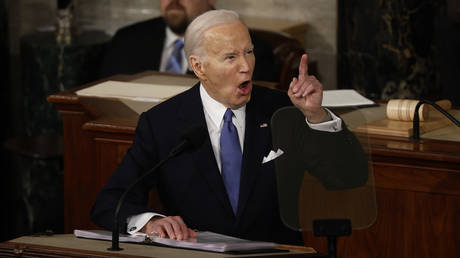ARTICLE AD BOX
-
The European elections witnessed the rise of the far-right movement in a number of countries, which caused a political earthquake in France, but without disturbing the political balance in Brussels, while the left and green parties made gains in the northern countries.
The European elections witnessed the rise of the far-right movement in a number of countries, which caused a political earthquake in France, but without disturbing the political balance in Brussels, while the left and green parties made gains in the northern countries.
Initial data confirm that the nationalist and extremist right-wing parties have made important gains, and a bitter setback for the leaders of the two main powers in the European Union, German Chancellor Olaf Scholz, and French President Emmanuel Macron, who announced the dissolution of the French Assembly and called for legislative elections on June 30.
The elections, to which more than 360 million voters were called to choose 720 members of the European Parliament, took place since Thursday, in a climate burdened by the bleak economic situation and the war in Ukraine, and while the European Union faces strategic challenges from China and the United States.
In France, the National Rally party led by Jordan Bardella topped the results with more than 31.5% of the votes, far ahead of the Ennahdha Party led by President Emmanuel Macron (15.2%), according to estimates by polling institutes. Thus, the National Front party will obtain 31 of the 81 French seats in the European Parliament.
Macron called for early elections after the far-right National Rally party inflicted a heavy defeat on his camp in the European elections. He said, in a speech following the preliminary results on Sunday, that “the first round of legislative elections will take place on June 30, and the second round on June 7.” "Next July."
In Germany, despite the recent scandals that affected the head of his list, the far-right Alternative for Germany party ranked second with 16.5% to 16% of the votes, behind the conservatives (29.5 to 30%). But he led by a large margin over the two ruling coalition parties, the Social Democrats (14%) and the Greens (12%).
In Italy, the far-right "Brothers of Italy" party, led by Italian Prime Minister Giorgia Meloni, topped the results with 25 to 31% of the votes, according to various opinion polls.
Also in Austria, the far-right Freedom Party obtained 27% of the votes, and the Dutch, who were the first to cast their votes on Thursday, strengthened the position of Geert Wilders' far-right party.
In Spain, official results showed that the right-wing Popular Party, the main formation of the Spanish opposition, won 22 seats in the European Parliament, compared to 20 for the Socialists led by Prime Minister Pedro Sanchez, and the far-right Vox party achieved progress by obtaining 6 seats.
As for Poland, the centrist pro-European party led by Prime Minister Donald Tusk took the lead over the populist nationalist Law and Justice Party, but the latter maintained an important portion of the votes, and the extreme right represented by the Confederaja party will not obtain less than 6 seats in the European Parliament. Its headquarters are in the French city of Strasbourg.
The left is making gains in the north
Meanwhile, left-wing and green parties made gains in the Nordic countries in the European elections on Sunday, while far-right parties declined, according to official results and opinion polls.
In Finland, the Left Alliance party achieved progress by winning 17.3% of the votes, four points more than in 2019, according to the results announced after 99% of ballot papers were counted.
In Sweden, the Green Party made progress by obtaining 15.7% of the votes, an increase of 4.2 points, according to a poll of voters’ opinions upon exiting the polls conducted by the SVT television channel.
As for Denmark, where the political scene is very fragmented, the Socialist People’s Party took the lead and achieved remarkable progress by obtaining 18.4% of the votes, an increase of 5.2% compared to 2019, according to a poll of voters’ opinions when they left the polls conducted by public television ( homes).
Over the course of 4 days, voters in 27 European Union member states voted to choose 720 representatives for the next 5 years. The results of the European Parliament elections began to be announced on Sunday evening on a giant screen installed in the General Assembly Hall of Parliament in Brussels.
Each country elects its members in proportion to its population, and the first five countries with the largest number of representatives in the European Parliament according to their population are: Germany with 96, France with 81, Italy with 76, Spain with 61, and Poland with 53.
The official results are scheduled to be announced on Monday, while the first General Assembly will be held on July 16, to begin the new legislative period.
.png)
 5 months ago
6
5 months ago
6









 English (US)
English (US)